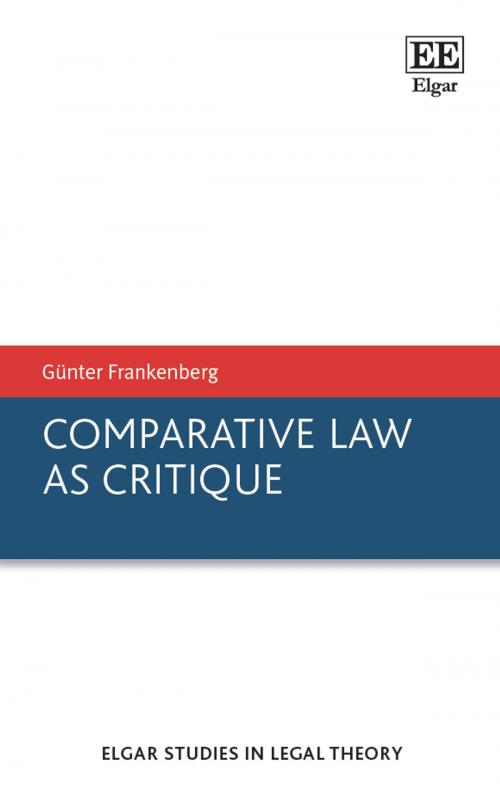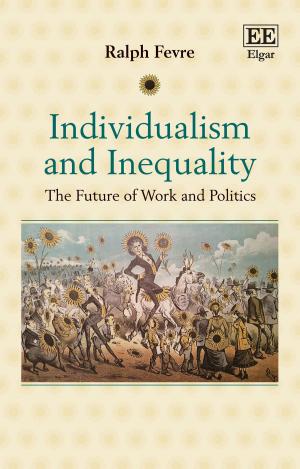| Author: | Günter Frankenberg | ISBN: | 9781785363948 |
| Publisher: | Edward Elgar Publishing | Publication: | April 29, 2016 |
| Imprint: | Language: | English |
| Author: | Günter Frankenberg |
| ISBN: | 9781785363948 |
| Publisher: | Edward Elgar Publishing |
| Publication: | April 29, 2016 |
| Imprint: | |
| Language: | English |
This book presents a critique of conventional ways to do comparative law. The author argues that, for comparative law to qualify as a discipline, comparatists must reflect on how and why they compare. The author discusses not only methods and theories, but also the ethical implications and the politics of comparative law.
This book presents a critique of conventional ways to do comparative law. The author argues that, for comparative law to qualify as a discipline, comparatists must reflect on how and why they compare. The author discusses not only methods and theories, but also the ethical implications and the politics of comparative law.















